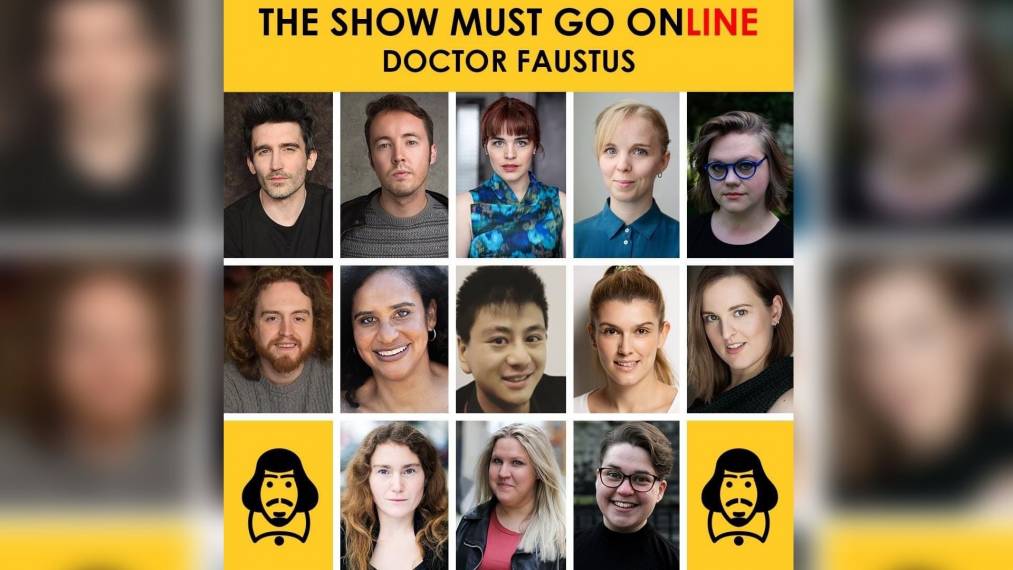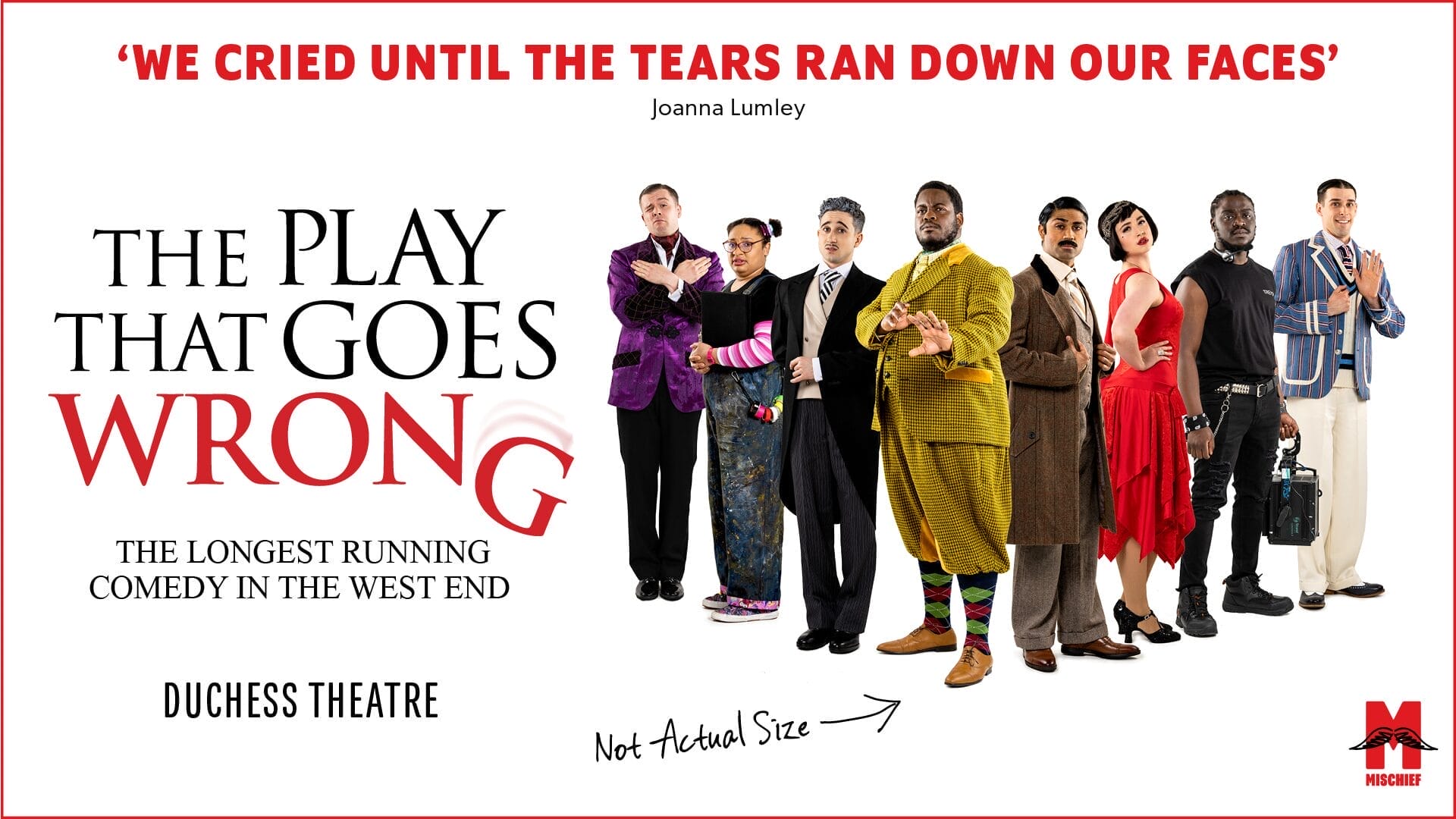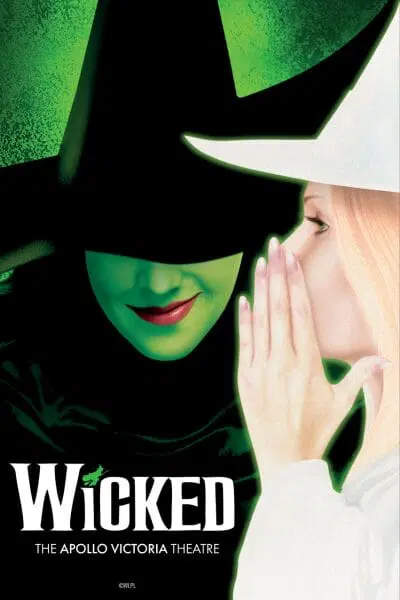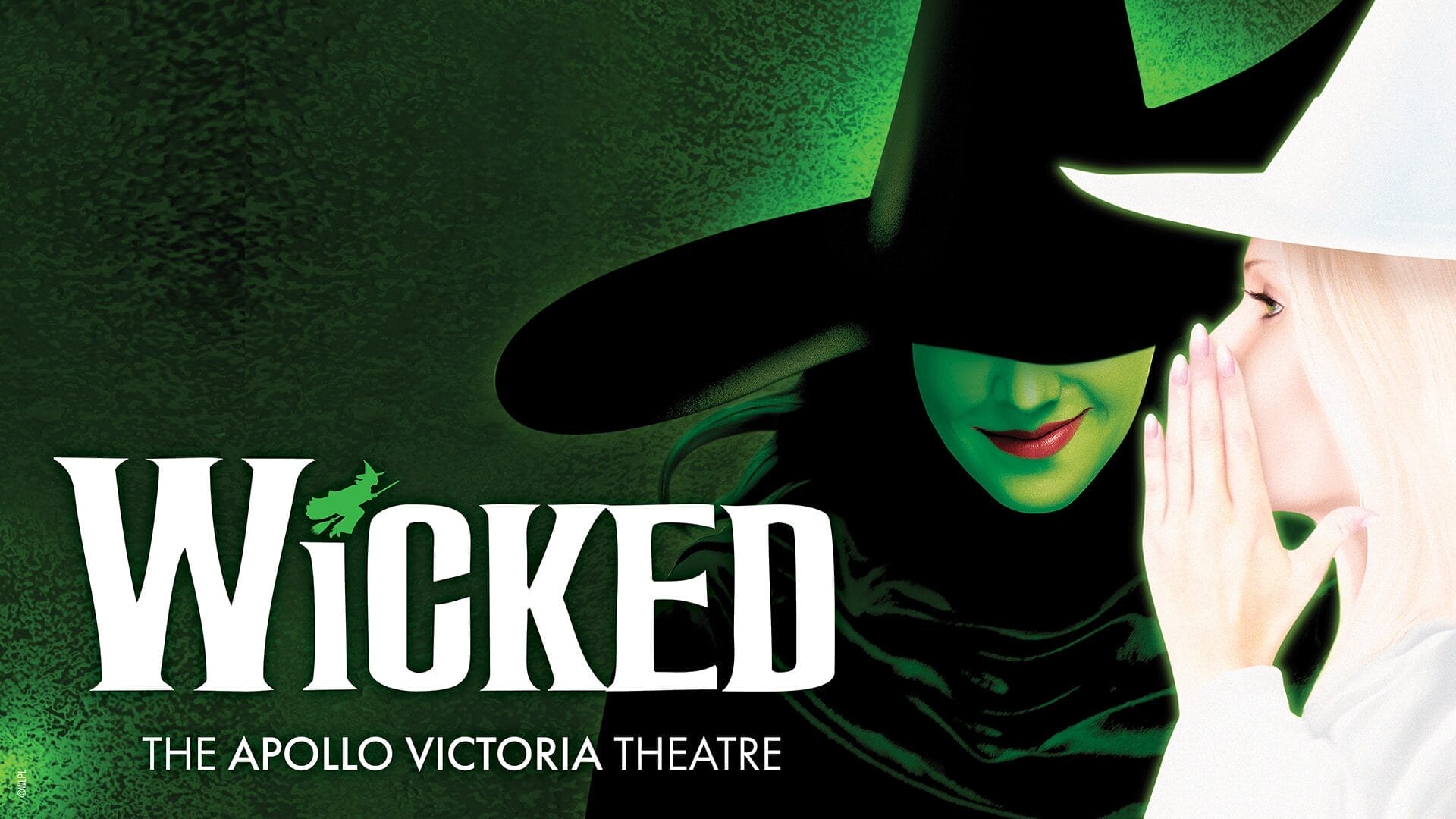Rob Myles has launched The Show Must Go Online, an online group that will read the complete plays of William Shakespeare in the order they were written, livestreamed on YouTube. Bringing actors and audiences together to collectively enjoy and experience Shakespeare at a time when connecting in a traditional theatre space isn’t possible.
The Show Must Go Online readings are a fun, sociable way for actors and theatre makers to stay connected and creative during these unprecedented times, and also provide audiences with something that’s live, that’s raw, that feels spontaneous and exciting – replicating the theatre experience for those who need to self-isolate.
Watch The Show Must Go Online Here
You’ve launched The Show Must Go Online, what can you tell us about it?
The Show Must Go Online is a weekly show, livestreaming reads of Shakespeare’s plays in the order they were believed to be written.
We have global casts and a global audience, and broadcast live every Wednesday at 7pm BST.
The shows are livestreamed using Zoom, which drives ingenuity and resourcefulness among our actors, and has the capacity to surprise and delight our audiences.
So far, we’ve done Two Gentlemen of Verona, Taming of The Shrew, Henry VI Part I and Henry VI Part II.
We’ve been watched by audiences in over 25 different countries and many of the United States. Only four weeks in, we’re also just getting started.
The COVID-19 Pandemic has been devastating for our community, why was it so important for you to keep creativity flowing?
It really has. Almost everyone I know in the arts has lost work, many of whom are really struggling with the economic uncertainty and the isolation.
I’ve always tried to focus on what CAN be done, whatever the situation is. While we’re at the mercy of the economic uncertainty like everyone else, we knew we couldn’t let it stop us creating entertainment, and that in a time like this, people would really need it.
Along with entertaining audiences with a truly live experience, keeping artists connected and creative was one of the core aims. For actors and theatremakers, this is a vocation, not a job. People do this because they need to. We created a shared space that people could pour that energy into, and we’ve been overwhelmed by the response. To date, we have over 650 actors interested to take part.
Hardships like these are an exercise in radical empathy. No matter what ‘strata’ of theatre people are involved in, from the biggest institutions in the country to those creating work in the regions, to actors and directors producing work with little support on the fringe – this hit everyone equally. I’ve found the theatre world more open, more inclusive and more responsive as a result. I hope this also enables better outreach.
Through this, I’ve met people from across continents doing incredible work that I wouldn’t have had the chance to meet or work with had I been myopically focused on my next ‘real life’ venture. I’ve been lucky enough to get support and encouragement from people who I’ve respected and looked up to for years.
However slim the glimmer of a silver lining might be right now, I find myself clinging to them and cherishing them. I think that’s what the project means to our actors and audiences too.
Where did the idea for Shakespeare’s plays in chronological order come from?
Great question! I’m a Shakespeare specialist and I love his work dearly. A good friend, Jonathan LeBillon, had done a similar thing in London a year or so ago – informal gatherings of actors reading the plays for the love of it. These reads didn’t have audiences, but the idea of doing them chronologically was fascinating, because it allowed you to see Shakespeare’s development as a dramatist, and re-live, in a sense, what Elizabethan audiences might have seen.
Already we’re catching in-jokes, cameos of characters to come, recycled phrases and devices – it also allows us to make decisions simply, which is really valuable, and to introduce people to lesser-known works.
You managed to get The Two Gentlemen of Verona streamed pretty quickly after our theatres closed, how did you manage in such a short time?
It was the right idea at the right time. We were already prepping the first read before the theatres had closed, because there was such a big response from actors who had lost work looking to put that energy somewhere. The period of indecision from the government that did so much damage to the industry meant plenty were ‘canaries in the coalmine’ before the official shutdown.
Even so, the turnaround time WAS very short. As I recall, the time between the first tweet and the first show was six days. In that time, extraordinary people mobilised to make it happen.
Sarah Peachey, my producing partner, figured out the logistics of Zoom and formalised the idea into a project. Dr Kay Guccione, who works in mentoring in higher education, and her husband Dr Ed Guccione, who works in data analytics, both rallied to make sure we set things up to be as inclusive as possible, and in such a way that we could wrangle the extraordinary response and form a cast.
The tweet blew up on Friday, we sent out a call on Saturday, cast on Sunday, and I hung out on Zoom for most of the day Mon-Weds, then we went live on Thursday night.
The astonishing thing about it was the creativity and ingenuity of that first set of actors – they helped pull together a proof of concept that showed this could be a new medium.
As an actor myself, I’ve done theatre, TV, webseries, radio plays, voice over… you get used to working in different mediums. Zoom was just one more to add to the pile. The actors were so enthusiastic about making the most of its potential, they turned a read into something closer to a performance in next to no time.
We’ve since moved to Wednesdays as the National Theatre decided to broadcast at the same time on the same day, and we want audiences to get as much great theatre as possible across the week.
Was it easy to pull together a cast and creatives, and how will you sustain this through to November?
Not at all. Fortunately, we had help wrangling all the submission data from Ed, whose spreadsheets made it possible to stay on top of the extraordinary response.
That said, we’re committed to inclusive casting across all the protected characteristics of the equalities act; we strive for a 50/50 gender split, we aim to have an international mix of actors including under-represented groups in theatre, and we try to combine seasoned professionals with recent graduates and experienced amateurs. We believe talent can come from anywhere, and we’re in a rare position of being able to demonstrate that.
Last week we cast Henry VI, with 65+ characters, in a day. That’s a feat in itself, but it’s what we have to do to keep this train on the rails.
Fortunately, Sarah, our Producer, is an experienced innovation and capabilities project manager, and I freelance as a creative lead in the same space, working agency-side on short deadlines for global clients. This pressure-cooker is a familiar one for us!
Sustainability is a challenge that reveals itself more each week.
We’re hoping that, given the globally inclusive nature of the project and the extraordinary contributions of those getting involved, we can gain access to some form of funding to allow us to keep going and fulfil our commitment. We’ve proven it can work, and we’d love to see what we could do with the right support.
Right now, everyone is donating their time and talent freely, including us. As a two-person team, it’s a 24/7 endeavour.
Luckily, we’ve had expressions of interest from people seeking to work behind the scenes, which we’ll need if we’re going to keep this moving forward.
Creatives, thankfully, have been putting themselves forward too. Richard Hand, a professional foley artist in radio, and Yarit Dor and Enric Ortuno, both professional fight and intimacy directors, are all wonderful contributors who bring new dimensions to the shows. Ben Crystal, a luminary in the Shakespeare world, has volunteered to curate our intros, which is fantastic. Kate Morley PR have donated their time to help us get the word out. Lucy Aarden, who played Julia in our first-ever stream, has stepped in to support us with social media. This week, Sydney Aldridge, a casting director, has offered her help with the casting process. It’s an embarrassment of riches.
What are some of the challenges you’ve faced setting this up?

Thanks to our freelance work in the innovation and capabilities space, both my producing partner Sarah Peachey and I were already familiar with Zoom, so we knew the medium. It was a simple matter to imagine cameras on/off is equivalent to on/off stage, and it quickly grew from there.
Connectivity and tech are of course challenging. We have to ask our actors to ensure anyone else in their homes takes a break from streaming, so they aren’t competing for bandwidth while we’re live.
Even then, we’re inevitably prone to tech issues – our sound cue system crashed mid-show this week, and someone’s camera froze. But these issues are just like the weather in an outdoor space – all we can do is trust the actors to respond to these unforeseen events. Thankfully, they have!
Similarly, because people are donating their time to the project, we have to deal with sudden dropouts and find replacement actors, recasting on the fly.
We also have to train a new group of actors every week in the conventions we’ve established, as they evolve, which is one of the more time-consuming elements we’re looking at optimising.
As time wears on, funding, as we’ve mentioned, will become an issue.
With all of these internal challenges to tackle, we’re also finding it tough to reach out to broader audiences who might take some convincing to give Shakespeare a try.
We believe this medium is uniquely well suited to first-timers: the names of the characters are on screen, you can see everyone easily and at once, and the focus is on the words. With actors speaking straight into mics, it’s often clearer than in an auditorium. We even had the mother of an autistic child comment to say this has brought the words to life for him, while he doesn’t fair well in a typical theatre.
What would you say to anyone thinking of spending some of their self-isolation time watching The Show Must Go Online?
The shows are freshly prepared for you every week, by talented actors from around the world, and you’re seeing them do it LIVE – really live – in their living rooms, free of charge!
They’re sharing scenes thousands of miles away from each other. They’re performing breathtaking language that gets to the heart of what it means to be human in times of crisis. We have setpieces, visual gags, stunt doubles… if you tune in, you’re sure to be surprised and delighted.
Theatre was invented as a feeling-box, the original “safe space” to simulate experiences without having to live through them, and achieve catharsis by doing so. That box is now a YouTube stream, but it’s no less effective in enabling people to come together and feel together. That’s what we all need right now.
You’ll laugh, you’ll cry, and like one audience member said, you’ll forget you’re in your living room for a few hours. You might even make new friends among the groundlings in the live chat!
We’d love to have you join this growing community of theatremakers and theatre-lovers. People you loved watching last week turn up in the live chat to watch with you this week. It’s a beautiful thing. And if you enjoy watching it, you can even take part!
How can people get involved, either as participants or audience?
Thankfully this one is easy! If you hit “Take Part” on the homepage, you can fill out the form to become one of our participants or one of our groundlings! Similarly, you can subscribe to the YouTube channel, and be sure to hit the Bell icon to receive notifications for the shows.
If anyone wants to support the actors and theatremakers involved, they can donate to our Patreon page – an opt-in hardship fund for those involved who have lost work due to Covid19.
Finally, if anyone would like to help with administrative support, work backstage, or fund the venture, they can contact [email protected] with their details.
Main Image: Rob Myles


















Comments 1